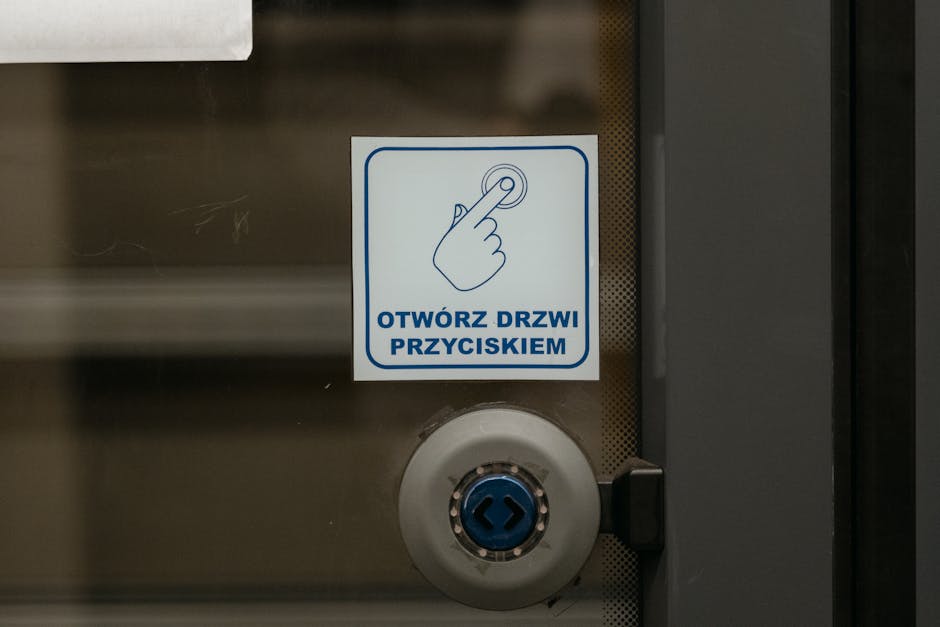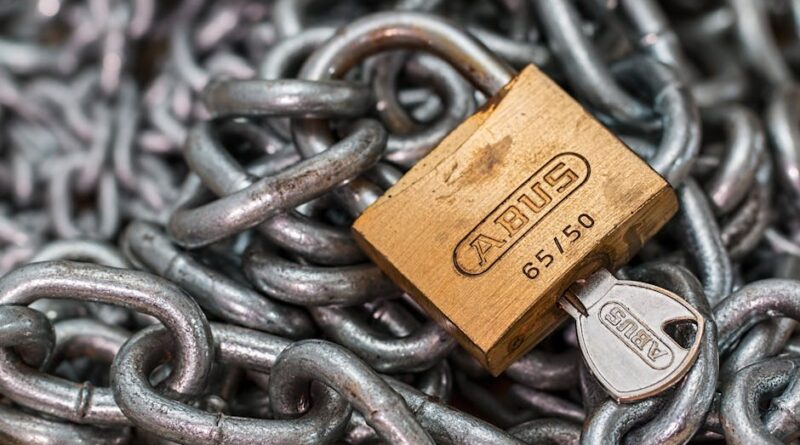Essential Tips for Access Control Success
Have you ever wondered how secure your home or workplace really is? Access control plays a huge role in keeping spaces safe. it’s not just about locks and keys anymore; today, technology is changing the game. Lets dive into essential tips that can lead you to success in access control.
What is Access Control?

Access control is all about who gets into a space and who doesnt. Whether it’s your front door or a high-tech office, it helps manage entry. Think of it like a bouncer at a club. Only the people on the list can get in.
This system can include physical keys, keycards, or even digital codes. The goal? Keep unwanted visitors out while allowing authorized people easy access.
Why is Access Control Important?

Security is a top concern for many. In fact, a study by the Bureau of Justice Statistics found that about 1 in 4 households experienced a property crime in recent years. Good access control can reduce these risks significantly.
By controlling who enters, you also protect valuable assets. This is vital for businesses that handle confidential information. A strong access control system can prevent costly breaches.
How Do You Choose the Right Access Control System?

Choosing the right system can feel overwhelming. So, what should you consider? Heres a quick guide:
- Assess Your Needs: What type of space are you securing? A home might need different measures than a large office.
- Consider Your Budget: Systems can vary in price. Set a clear budget before you start shopping.
- Look for Scalability: Will your access control system grow with your needs? Choose a system that can expand.
- Check Compatibility: Make sure the system works seamlessly with other security measures you have.
By answering these questions, youll be in a better position to make a smart decision.
What Types of Access Control Are There?

There are several types of access control systems. Here are the most common ones:
- Keypad Systems: Users enter a code on a keypad to gain access. This is common in many homes and small businesses.
- Card Access Systems: Users swipe a card to enter. This is often used in offices and hotels.
- Biometric Systems: These systems read fingerprints or facial features. They offer high security but can be more expensive.
- Smart Locks: These locks can be controlled via smartphones. They offer convenience and flexibility.
Each type has its own perks. Consider what will work best for your situation.
How Can You Enhance Security with Best Practices?
Implementing a system is just the start. To really succeed, follow these best practices:
- Regularly Update Access: Keep your list of authorized users current. Remove anyone who no longer needs access.
- Conduct Regular Audits: Check who is accessing your system. This helps catch any suspicious activity early.
- Train Your Team: Make sure everyone knows how to use the system correctly. This reduces errors and improves security.
- Use Multi-Factor Authentication: For digital systems, adding extra verification steps offers additional protection.
These steps can help you stay ahead of potential threats.
What Common Mistakes Should You Avoid?
Even the best systems can fail without proper management. Here are some common pitfalls to avoid:
- Ignoring User Feedback: If users find the system difficult, they may bypass it. Listen to their concerns and make improvements.
- Neglecting Maintenance: Regular maintenance is key. A malfunctioning system can leave you vulnerable.
- Overlooking Training: A system is only as good as the people using it. Invest time in training and refreshers.
Steering clear of these mistakes keeps your access control functioning smoothly.
How Do You Handle Emergencies Effectively?
Emergencies can happen anytime, so being prepared is crucial. Heres how to handle them:
- Have a Backup Plan: If your primary system fails, know how to access your space manually.
- Regularly Review Emergency Protocols: Make sure everyone knows what to do in a crisis. Hold drills to practice.
- Keep Contact Information Handy: Have a list of emergency contacts, including security personnel and local authorities.
Being prepared can save time and lives during an emergency.
Can Technology Improve Your Access Control?
Absolutely! Technology is constantly evolving. Here are some ways to harness it:
- Mobile Access: Use apps to control your locks remotely. This adds convenience.
- Integration with Other Systems: Combine access control with alarms or surveillance cameras. This creates a comprehensive security solution.
- Data Analytics: Some systems track usage patterns. This information can help you make informed security decisions.
Embracing technology can lead to better security and easier management.
In Summary: What Are Your Actionable Takeaways?
Success in access control isn’t just about installing a system. It involves understanding your needs, avoiding common mistakes, and staying ahead of potential threats. Here are some key points to remember:
- Assess your specific needs and budget before choosing a system.
- Regularly update your access lists and conduct audits.
- Invest in training for all users to ensure effective system use.
- Stay updated with technology to enhance your security measures.
With the right approach, your access control system can significantly improve your security. Embrace these tips for a safer space, whether at home or work.
For more on home security, check out our article on Home Security Tips.



